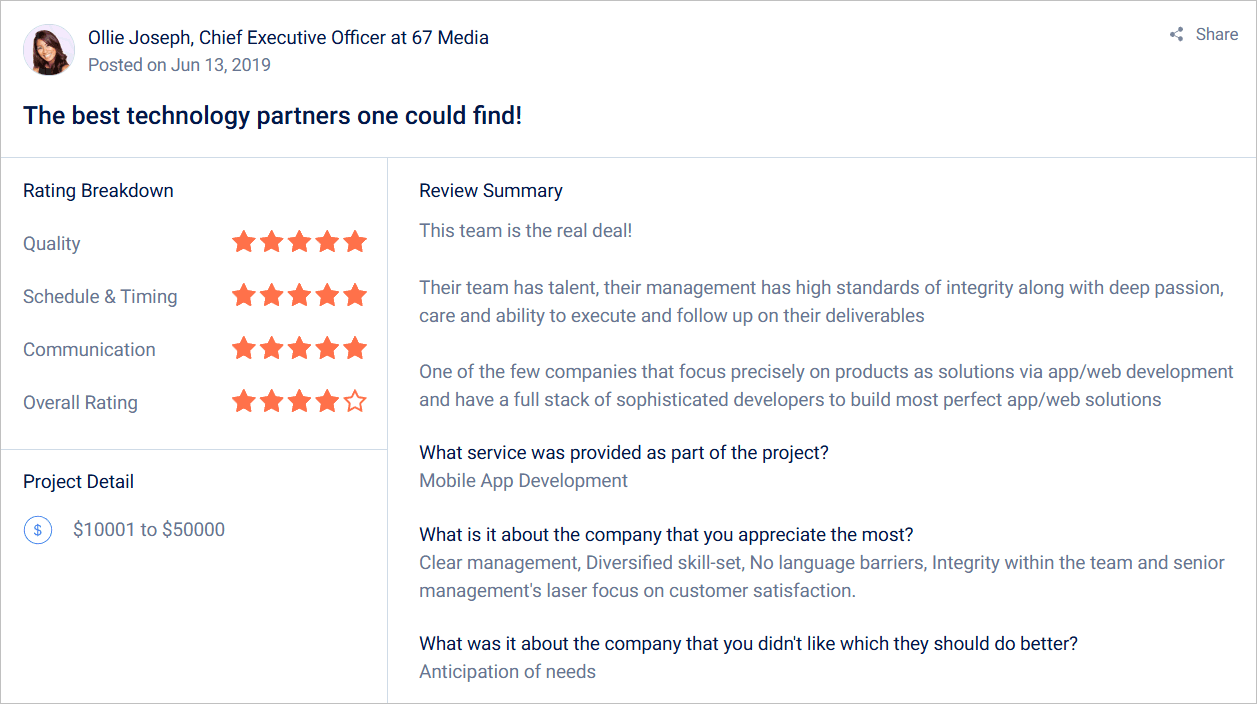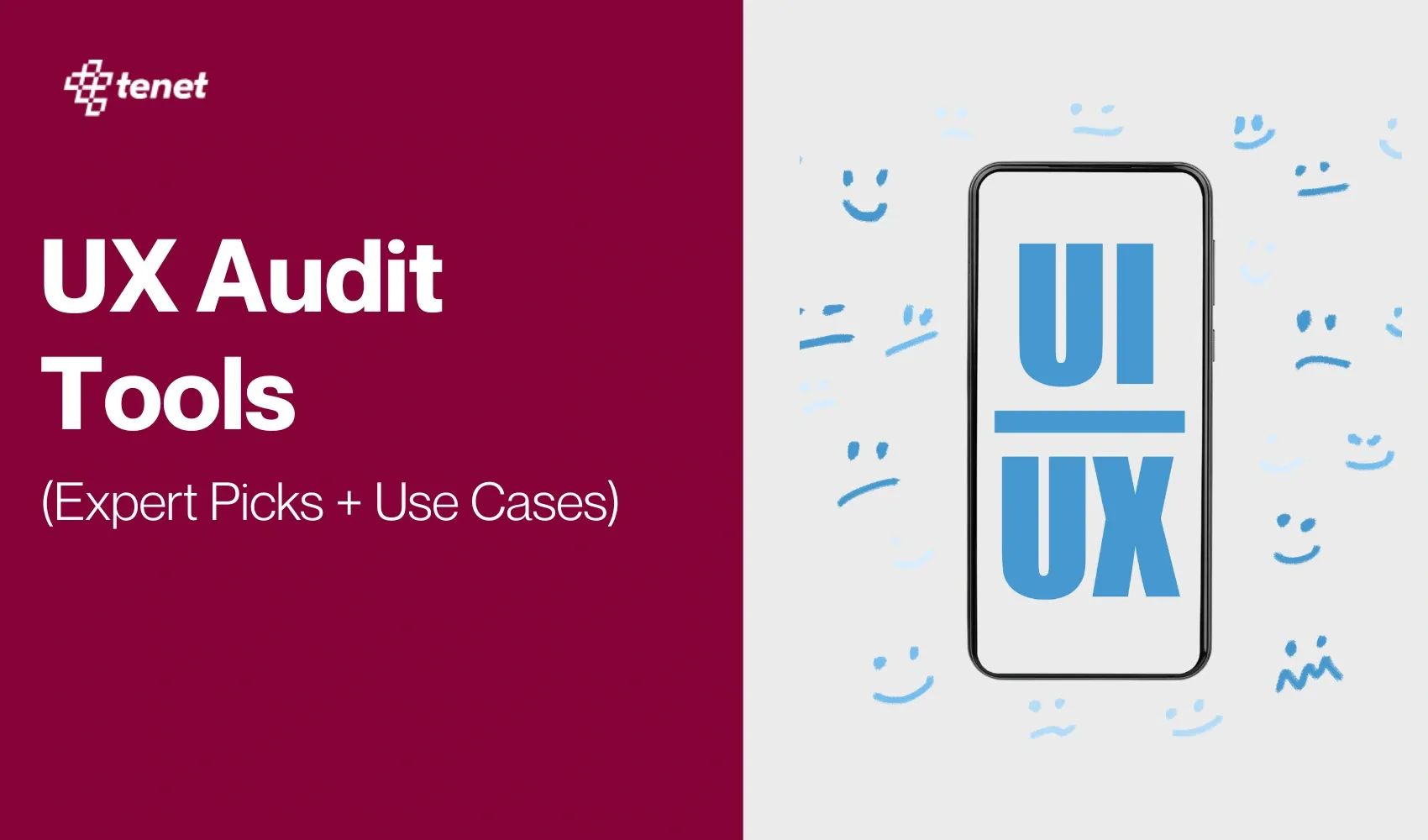How Much Does Digital Product Design Cost in 2025?
 By
By Share
 By
By Share

Today first impressions on your potential customers come through a digital interface and the success of your product can hinge on exceptional design.
Whether it's an app, website, or software, the right design ensures functionality and aesthetics come together to create unforgettable user experiences.
At Tenet, we understand that every pixel matters. As a leading digital product design agency, we specialize in turning ideas into impactful designs that resonate with users.
Our personalized solutions cover the requirements of a startup to enterprise-level organizations.
But how much should you budget for digital product design in 2025?
Let’s explore the factors influencing design costs and why Tenet is your trusted partner in creating quality digital products.
What is digital product design?
Digital product design is the process of creating user-friendly digital solutions like apps, websites, and software products. It includes designing both the user interface (UI) and user experience (UX). The browser you're using to read this post and the search engine you used to find it are examples of digital products.
In transforming wireframes to prototypes, a digital product design checks whether each element aligns with the product’s purpose and user needs.
How much does digital product designing services cost?
The cost of digital product designing services in 2025 typically ranges from $5,000 to $50,000 for iOS or Android platforms. For more complex designs, the designs for both platforms can cost up to $150,000.
There are different factors that impact the pricing such as the number of screens, platform-specific requirements (iOS, Android, or both), level of customization, and designer expertise.
What are the types of product designs?
Digital product design includes several types and each is tailored to specific objectives and user needs. Here's a breakdown of the key digital product design types:
Engineering Design (Variant Design)
Engineering design is also called variant design. It focuses on improving or optimizing an existing product. The goal may include:
- Improving a component’s performance or reliability
- Reducing production costs
- Adapting to new materials or manufacturing methods
For example, a designer might alter the shape of a digital device to improve ergonomics or replace materials to reduce weight while maintaining durability.
Estimated Cost Range: $4,000 to $40,000, depending on complexity and scope.
Adaptive Product Design
Adaptive product design is about modifying an existing solution to address new requirements or challenges. While the core concept remains unchanged, its application evolves to solve different problems or meet specific criteria.
For example, a mobile app might be adapted for new use cases or user demographics by tweaking its interface or functionality.
Estimated Cost Range: $5,000 to $50,000, varying with the extent of adaptation and customization.
Original Product Design
Original product design focuses on creating innovative solutions to meet user needs. It involves introducing a unique concept which is inspired by the latest scientific discoveries or technological advancements.
There are two variations of original product design:
- Innovative designs inspired by cutting-edge research and new technologies.
- Unique combinations of existing solutions which offer new functionalities and features.
The type of design requires creativity and disrupts traditional approaches.
Estimated Cost Range: $20,000 to $100,000 or more, based on innovation level and complexity.
System Design
System design is about organizing and structuring elements in a way that enhances usability and achieves business goals.
A common analogy is the layout of a physical store, where items are grouped into categories and arranged logically for intuitive navigation.
System designers balance user intuition with business objectives and ensure the product is both user-friendly and effective in achieving its purpose.
Estimated Cost Range: $10,000 to $50,000, depending on system complexity and integration requirements.
What factors affect the product designing costs?
There are several key factors that influence the cost of digital product design. Understanding these elements can help in budgeting and planning for your project.
Project Complexity
The complexity of a digital product significantly impacts design costs. A project with numerous features, intricate user interactions, or advanced technologies such as AI-driven chatbots, augmented reality (AR) applications, or IoT integrations requires more design time and expertise.
For example, a simple informational app, such as a basic to-do list app with minimal features, typically costs between $5,000 and $10,000. On the other hand, a complex e-commerce platform with advanced functionalities like custom animations, a complex back-end, multiple integrations, and robust security can range from $40,000 to $150,000 or more
Platform Specificity
Designing for multiple platforms such as iOS, Android, and web affects the overall cost. Each platform has unique design guidelines and user expectations, necessitating tailored designs.
Among these, designing for iOS typically costs higher due to stricter design guidelines and seamless integration with Apple's ecosystem. Android designs require additional effort because of the diverse range of devices and screen sizes.
Customization Level
The degree of customization in a product's design influences costs. Utilizing standard design templates is more cost-effective but may not align perfectly with your brand identity.
But bespoke designs that reflect your brand's unique aesthetics and functionality require more time and specialized skills that results in higher expenses. Customization involves technical approaches like:
- Responsive Computer-Aided Design (CAD), which adapts designs using real-world data.
- Knowledge-Based Configuration, which assembles components based on specific rules.
- Custom-Fit Techniques, which tailor designs to individual needs for better comfort and usability.
Designer Expertise
The experience and skill level of the design team play a crucial role in pricing. Seasoned designers or reputable agencies often charge higher rates due to their expertise and track record of delivering quality work.
While hiring top-tier professionals may involve a larger upfront investment, it can result in a superior product that meets your business objectives effectively.
At Tenet, our experienced team ensures that every design meets and exceeds industry standards. We focus on delivering products that drive user engagement and business growth. With our focus on ROI, we turn your design investment into measurable results which makes every dollar count.
Digital product designing cost and pricing models
Digital product designing costs vary based on project scope, complexity, and pricing models. Common models include fixed pricing, hourly rates, and value-based pricing, each catering to different project needs and budgets. Here’s a detailed breakdown:
Project-based (fixed) pricing: How much do one-off initiatives cost?
How it works: The designer provides a set fee after reviewing the project scope and deliverables. Ideal for one-time, well-defined projects like a basic app or website. Any scope changes may result in additional charges.
Best for: One-time, clearly outlined projects.
Pros:
- Predictable costs
- Simplified budgeting
- Defined deliverables
Cons:
- Limited flexibility for scope changes
- Higher risk of scope creep
Typical cost: $5,000–$50,000 for basic to mid-complexity projects.
Hourly pricing: What rates do freelancers charge for digital product designing
How it works: Freelancers or agencies charge based on hours worked. Clients share project details, receive a quotation, and pay periodically based on tracked hours. Best for projects with flexible or evolving requirements.
Best for: Projects requiring continuous iterations, design refinements, or long-term support.
Pros:
- Flexibility for changes
- Payment tied to work completed
Cons:
- Unpredictable final cost
- Requires detailed time tracking
Typical cost: $50–$150/hour, depending on designer expertise.
Value-based pricing: What rates do product designing companies charge
How it works: Pricing is based on the value the design brings to the client’s business. The designer collaborates with the client to understand goals and expected outcomes. Best for high-impact projects that align costs with ROI.
Best for: High-impact projects with measurable business outcomes.
Pros:
- Aligns cost with ROI
- Helps with strategic thinking
Cons:
- Negotiations can be complex
- Requires in-depth understanding of business goals
Typical cost: Highly variable, often exceeding $50,000 for premium projects.
Why do brands choose Tenet for digital product design and development?
Brands choose Tenet for digital product design and development due to our proven track record of delivering tailored solutions across various industries. Here’s why businesses trust us:
- 450+ Solutions Delivered for our clients and partners.
- 20M+ People Impacted through our solutions.
- 15+ Countries Catered for our global clientele.
- 98% Client Satisfaction, as reflected by our client feedback.
Our portfolio includes successful collaborations with leading organizations such as G42 Healthcare in the UAE, M42, and Gartner.
Our commitment to excellence is further recognized through accolades like being named a Top Web Design Company in 2023.

With a professional team of experts in design and development, we craft user-centric solutions that drive results.
Get in touch with our team to share your digital product design requirements.
Frequently asked questions
What does a professional digital product design firm do?
A digital product design firm specializes in crafting user-friendly solutions tailored to client needs. Services include UI/UX design, prototyping, user testing, and implementation support. At Tenet, we combine these services with data-driven strategies to maximize engagement.
How Much Does Digital Product Design Cost for Startups?
For startups, costs typically range from $5,000 to $50,000, depending on the scope and complexity. Tenet offers scalable solutions designed to fit startup budgets without compromising quality.
How long does the product design process typically take?
The timeline for digital product design varies based on project complexity. Simple projects may take 4–8 weeks, while complex designs involving multiple platforms or extensive testing can require 12–16 weeks. The key factors that influence timelines include the number of screens, customization level, and feedback cycles. At Tenet, we prioritize efficient workflows to meet deadlines without compromising quality.
Why is Tenet the most trusted digital product designing agency?
At Tenet, we provide end-to-end digital product design solutions that can remove all your worries so that you can focus on your core operations. We have a creative team of experts who will deep dive into understanding your brand and target audience. We keep the process transparent and perform multiple tests to finalise the product design.
How Tenet helps you design digital products for your startups?
At Tenet, we specialize in creating scalable and impactful digital products for startups. Here’s how we help:
- Research and Strategy: We begin by understanding your business goals and target audience.
- UI/UX Excellence: Our design team then prioritizes usability and aesthetics to create a memorable user experience.
- Prototyping and Testing: We develop prototypes and conduct user testing to refine the design.
- Launch Support: We collaborate with the development team to ensure a seamless transition from design to implementation.
- Iterative Improvements: We also provide insights to optimize and enhance your product further post launch.

Article By
Shantanu Pandey
Shantanu Pandey is a UI/UX design, branding, and growth marketing expert. As the Founder & CEO of Tenet, he helps global brands create amazing digital experiences.
Expertise Delivered Straight to Your Inbox
Expertise Delivered Straight to Your Inbox

Got an idea on your mind?
We’d love to hear about your brand, your visions, current challenges, even if you’re not sure what your next step is.
Let’s talk
































 U.A.E:
U.A.E: India:
India: UK:
UK: USA:
USA:
